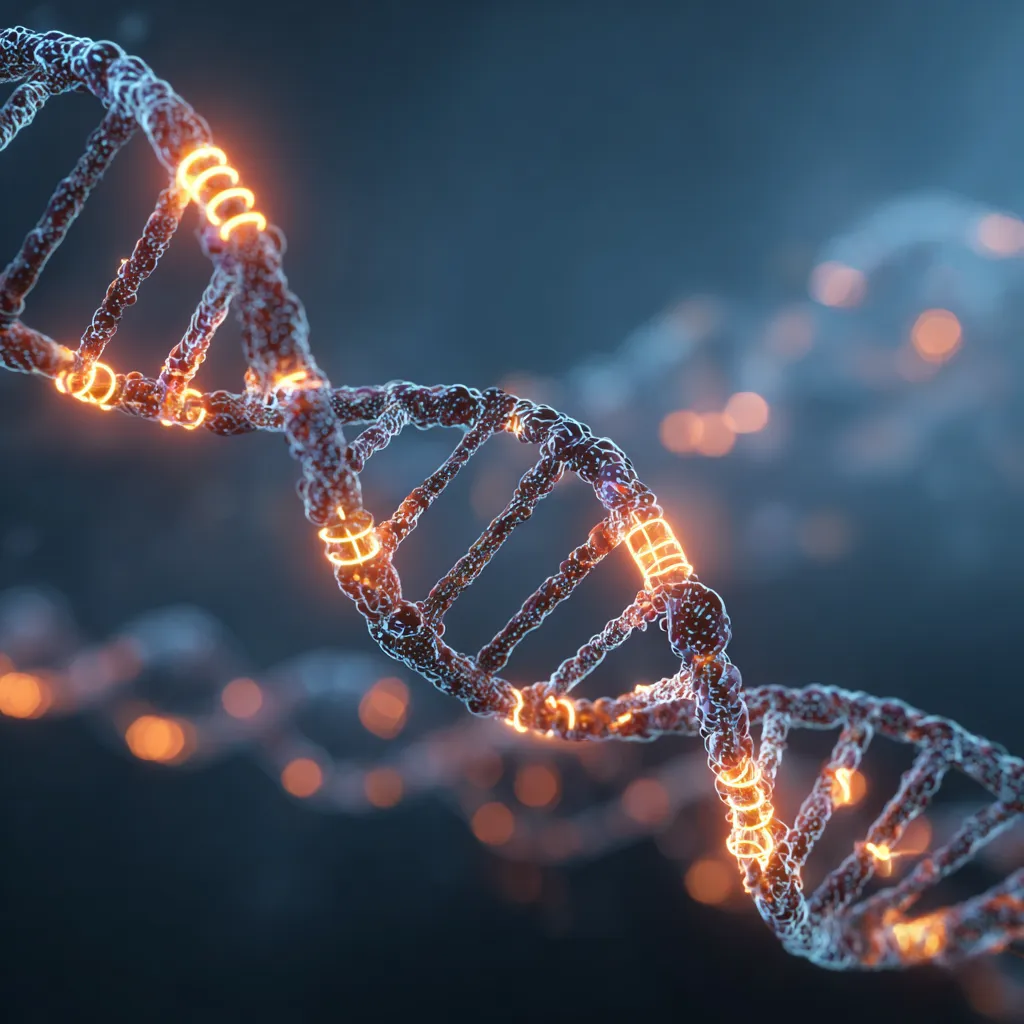
How Your DNA Isn’t Destiny: Epigenetics and Fertility Explained
Introduction: DNA Myths and Fertility
When it comes to fertility, one phrase shows up again and again: “It’s in your genes.” Maybe you’ve heard that if your mother or grandmother struggled with infertility, chances are you will too. Or that certain DNA markers seal your fate when it comes to egg quality, miscarriage risk, or even hormone imbalances.
But here’s the good news: DNA is not destiny. Your genetic code may set the stage, but it’s not the entire script. What really decides how those genes play out is a layer of biology called epigenetics — the system of “switches” that turn genes on or off, up or down, depending on the signals your body receives.
And when it comes to fertility, these switches matter. A lot.
What Epigenetics Really Is (Without the Jargon)
Think of your DNA as a library. Every cell in your body has the same set of books — the same 20,000+ genes. But not every book needs to be read in every situation. Epigenetics is like the librarian deciding which books to open, which chapters to highlight, and which ones to keep closed for now.
Instead of changing the words in the book (that’s genetics), epigenetics changes the way the book is read. Methyl groups, histone proteins, and other small chemical tags act as bookmarks and highlighters, guiding how actively a gene is expressed.
This means that your environment — everything from the food you eat to the stress you experience to the toxins you’re exposed to — can influence which genes are switched on or off.
Epigenetics in Fertility: Real-Life Examples
So what does this have to do with conception? Let’s look at a few ways epigenetics shapes reproductive health:
Egg and Sperm Quality: Studies show that oxidative stress and poor nutrition can silence genes that protect DNA integrity in eggs and sperm. On the flip side, antioxidants and balanced nutrients can “switch on” protective pathways.
Hormone Balance: Epigenetic changes can influence how sensitive your cells are to estrogen, progesterone, or testosterone — directly shaping cycle regularity and ovulation.
Immune Tolerance: Successful implantation requires the immune system to welcome, not attack, an embryo. Epigenetic regulation of immune cells is critical in this “acceptance” process.
Transgenerational Effects: Research even shows that the experiences of parents and grandparents — famine, stress, toxin exposure — can leave epigenetic marks that influence fertility in the next generation.
This doesn’t mean you’re trapped by your ancestors’ choices. It means you have an opportunity to rewrite the script for your own body, and even for your future children.
🧬 DNA Isn’t Static: The Power of Signals
Here’s the key: your DNA sequence is fixed, but the way it’s expressed is dynamic. It changes in response to signals. Food is a signal. Sleep is a signal. Stress is a signal. Even light exposure and social connection are signals.
Every day, your body is flooded with these cues — and your genes listen. Epigenetics is the language that translates those signals into biological action. That’s why identical twins, who share the same DNA, can have very different fertility experiences depending on their lifestyle, stress, and environment.
💡 Why This Matters for Couples Trying to Conceive
Understanding epigenetics changes the conversation around fertility. Instead of seeing infertility as a fixed sentence written in your DNA, you begin to see it as a system responding to inputs. That shift brings hope — and responsibility.
It’s not just about the age of your eggs or sperm count.
It’s about the quality of the environment your reproductive cells are growing in.
And the environment is something you can influence.
This doesn’t mean quick fixes or miracle solutions. Epigenetics works on timelines of weeks to months. But it does mean that the steps you take today — nourishing your body, calming your nervous system, reducing exposures — can literally reshape the genetic expression of your reproductive cells in the months ahead.
The Evidence Behind It
For those who like the science, here are just a few examples from the research:
A 2018 study in Human Reproduction showed that poor diet quality was linked to altered epigenetic marks in sperm, affecting early embryo development.
Research in Nature Communications demonstrated that maternal stress during pregnancy left measurable epigenetic changes in the offspring’s immune system.
Animal studies consistently show that mitochondrial nutrients (like CoQ10) can improve egg quality through epigenetic and metabolic pathways.
The evidence is still growing, but the message is consistent: what you do matters.
